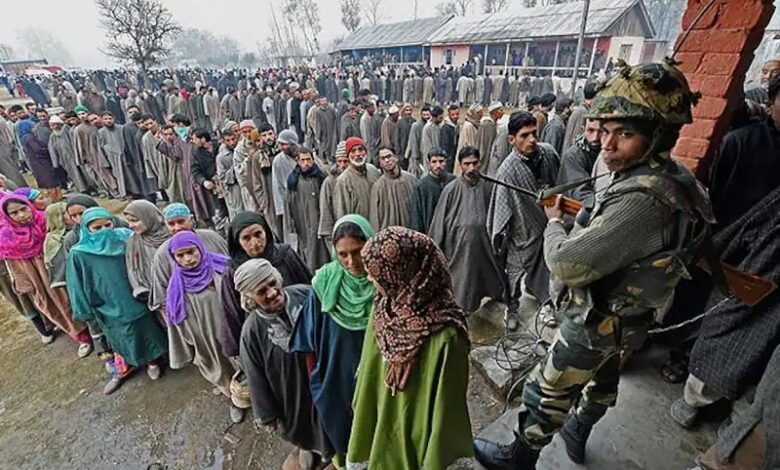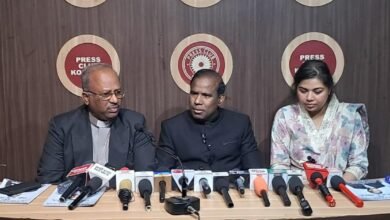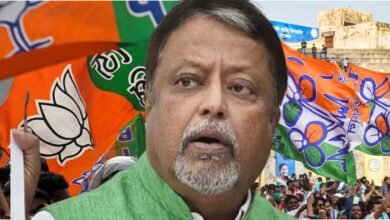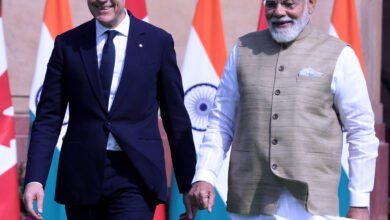Centre Provides Roadmap for Electoral Democracy in Jammu and Kashmir, Emphasizes Role of Election Commission

In a significant development, the Centre has articulated its roadmap for the restoration of electoral democracy and complete statehood in the union territory of Jammu and Kashmir. The government’s stance was presented to the Supreme Court on August 31, underlining that elections in the region can be scheduled at any point, with the final decision entrusted to the Election Commission of India and the state poll panel.
Solicitor General Tushar Mehta conveyed this crucial information to a five-judge bench led by Chief Justice DY Chandrachud. Mehta underscored that the authority to decide the timing of elections in Jammu and Kashmir rests with the Election Commission of India, a constitutional body responsible for overseeing the conduct of elections in the country.
The announcement comes as a significant stride towards restoring the democratic fabric of Jammu and Kashmir, affirming the government’s commitment to ensuring that the voices of the people are represented through the electoral process.
Mehta elucidated the phased approach that will be adopted for conducting elections in the region. The electoral process will be divided into three stages, each with its distinct significance and implications. The first stage entails the conduct of panchayat polls, followed by municipal polls in the second stage, culminating in legislative assembly polls as the third and final stage.
This phased approach reflects a well-structured strategy aimed at progressively reinstating a robust democratic framework in Jammu and Kashmir. By initiating the process with grassroots-level panchayat polls, the government aims to empower local governance bodies and cultivate a sense of community participation in decision-making.
Subsequently, municipal polls will serve as a platform for citizens to engage in civic matters and contribute to the development of urban areas. Finally, the legislative assembly polls will mark the apex of the electoral journey, allowing the people of Jammu and Kashmir to elect representatives who will shape the legislative landscape and advocate for their interests on a broader scale.
The Centre’s commitment to adhering to the decision-making authority of the Election Commission of India underscores the democratic ethos and institutional integrity of the nation’s electoral processes. By entrusting the election schedule determination to an independent and impartial body, the government reinforces the principles of transparency, fairness, and inclusivity in the democratic process.
The announcement regarding the restoration of electoral democracy in Jammu and Kashmir signals a progressive shift in the region’s political landscape. As the journey towards complete statehood and democratic representation unfolds, it reflects the resilience of the people and their aspirations for active participation in governance.
The roadmap presented by the Centre is poised to reinvigorate the political discourse in Jammu and Kashmir, fostering a renewed sense of civic engagement and ownership among its residents. The phased approach, spanning panchayat, municipal, and legislative assembly elections, resonates with the values of decentralization, community-driven development, and responsive governance.
Additionally, the Centre’s commitment to conducting elections underscores its recognition of the pivotal role that electoral processes play in shaping the destiny of a region. By paving the way for citizens to choose their representatives through democratic means, the government’s roadmap facilitates the expression of diverse viewpoints, fostering an environment of pluralism and inclusivity.
News Mania Desk / Agnibeena Ghosh 1st September 2023






